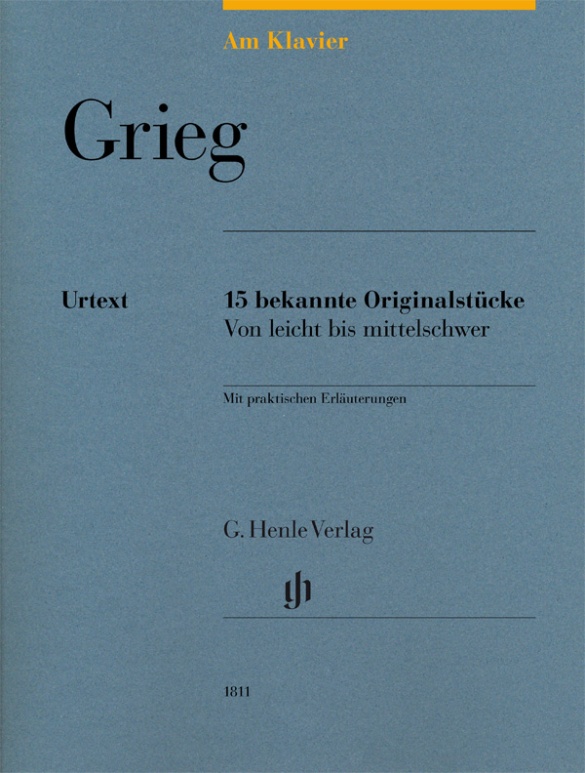

Edvard Grieg
Am Klavier - 15 bekannte Originalstücke
Content/Details
About the Composer
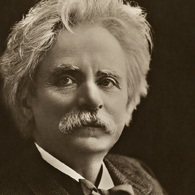
Edvard Grieg
Most important Norwegian composer of the nineteenth century and promoter of Norwegian folk music. His lyrical character pieces in particular are well known.
| 1843 | Born in Bergen on June 15, the son of a merchant and British consul; early piano lessons with his mother, who was a pianist. |
| 1858–62 | Studies at the Leipzig Conservatory. |
| 1862 | Concerts in Norway. |
| 1863 | Copenhagen, with the support of Niels W. Gade. |
| from 1864 | Interest in Norwegian folk music, which finds its way into his compositions. |
| 1866 | Breakthrough with a concert of Norwegian music. Conductor of the Philharmonic Society. |
| 1867 | The first of a total of ten volumes of Lyric Pieces for piano, Op. 12, with relatively simple piano settings. |
| 1868/69 | Composition of the Piano Concerto in A minor, Op. 16, which is based on Schumann’s piano concerto. |
| 1869 | “25 Norwegian Folk Melodies and Dances,” Op. 17, for piano. |
| 1873 | Begins work on the opera “Olav Trygvason,” Op. 50, after Bjørnson, which is never completed. |
| 1874 | Composition stipend from the state. |
| 1874/75 | Composition of incidental music to Ibsen’s “Peer Gynt,” Op. 23, the basis for the Peer Gynt Suites. |
| 1876 | Attends the premiere of Wagner’s “Der Ring des Nibelungen” in Bayreuth. |
| 1880–82 | Conductor of the “Harmonien” musical society in Bergen. Thereafter he accepted no other positions. |
| 1883 | Visit to Bayreuth; he hears Wagner’s “Parsifal.” |
| 1884 | Composition of “From Holberg’s Time,” Op. 40, his most popular work. |
| from 1885 | He moves into his villa “Troldhaugen” (near Bergen). Composition and revision of older works in spring and summer, concert tours in fall and winter. |
| 1891 | Composition of the “Lyric Suite,” Op. 54, orchestrated in 1905. |
| 1907 | Death in Bergen on September 4. |
About the Authors
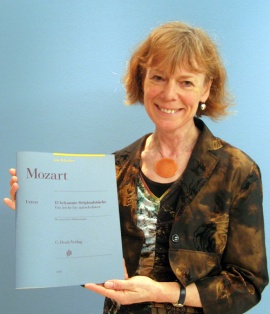
Sylvia Hewig-Tröscher (Editor, Fingering)
Sylvia Hewig-Tröscher studied piano at the Hochschule für Musik in Munich under Erik Then-Bergh and Hermann Reutter, as well as under Louis Hiltbrand at the Conservatoire de Musique in Geneva. 1977 she finished the „ Classe de Virtuosité“ in Geneva with the Premier Prix avec distinction and received the Henry Broliet prize as well as being awarded the GEDOK prize. Also organ studies under Lionel Rogg finishing with the „Diplome d’Orgue“. Masterclasses with George Halmos, Klaus Schilde, Karl Seemann and Wilhelm Kempff, followed, as well as with the cembalo player Li StadelmannIn. 1977 the piano trio Orfeo was established.
Since then, as a solo pianist and chamber musician, her concert activities have led her to Germany, Switzerland, France, Italy, Austria, America, Egypt, India, Korea, and Japan. The list of recordings includes Bayerischer Rundfunk and Südwestfunk Freiburg, Baden-Baden, record and CD recordings of (among others) seldom played works of the classical and romantic periods with Musica Bavarica. Further CD recordings including modern music and first performances with Calig, Symicon, Bayer Records, Arts Magnamedia, and Sony, also co-production of the Bayreischer Rundfunk and Deutscher Musikrat.
Masterclasses in Villa Marteau, Marktoberdorf, Hammelburg, Brixen, Castelnuovo di Garfagnana and New York. Today Sylvia Hewig-Tröscher works as a professor of piano and vice president of the Hochschule für Musik and Theater Munich.
Product Safety Informations (GPSR)

G. Henle Verlag
Here you can find the information about the manufacturer of the product.G. Henle Verlag e.K.
Forstenrieder Allee 122
81476 München
Germany
info@henle.de
www.henle.com
Die Texte Hewig-Tröschers sind leicht lesbar, allgemein verständlich und in ihren praktischen Empfehlungen problemlos umzusetzen, etwa wenn sie mit wenigen Worten Empfehlungen gibt, wie eine Oberstimme bei Mehrstimmigkeit in einer Hand hervorgehoben werden kann. Auch der Klavierpädagoge liest die Anmerkungen der Herausgeberin durchaus mit Gewinn für den eigenen Unterricht.
Üben & Musizieren, 2016De serie houdt rekening met verschillende spelniveaus (...), uithoudingsvermogen (...) en wil twijfelaars niet afschrikken door een te groot gewicht van een volume (...) of een te druk tekstbeeld. Ook aan de portemonnee van de doelgroep is gedacht, want de serie is aantrekkelijk geprijsd. Kortom, alle voorwaarden zijn aanwezig, alle mogelijke duwtjes in de rug gegeven, nu is het de beurt aan de pianist zelf. Er is geen uitstel meer mogelijk.
Piano Bulletin, 2015recommendations
autogenerated_cross_selling
Further editions of this title
Further editions of this title


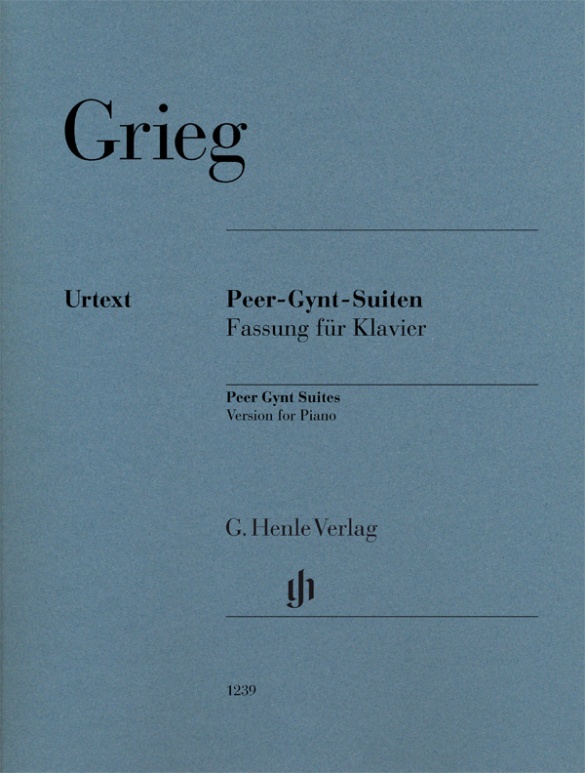

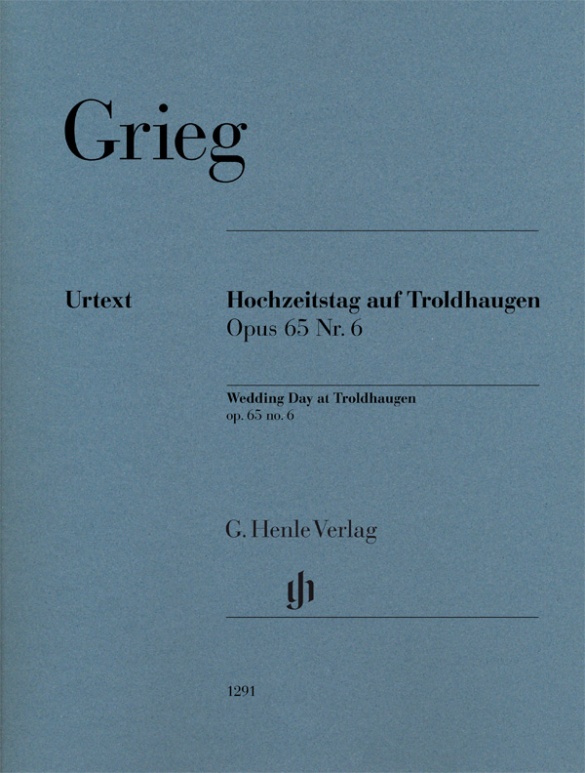
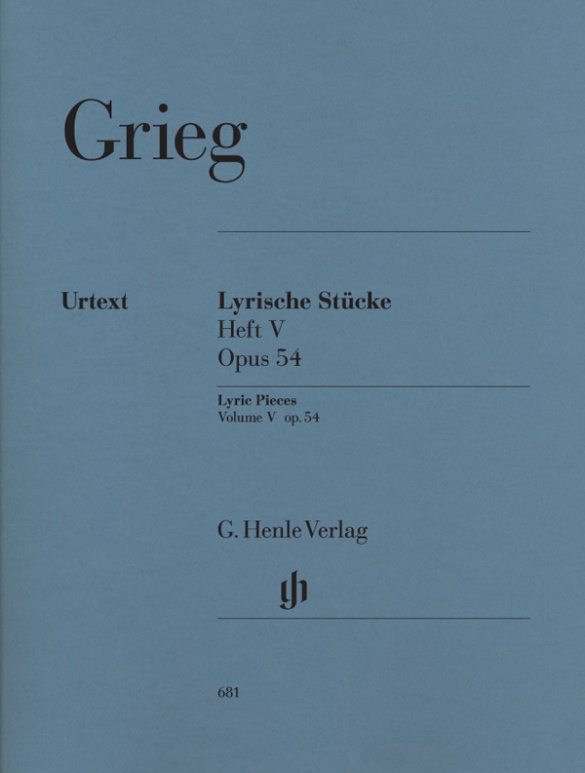
not available in the USA